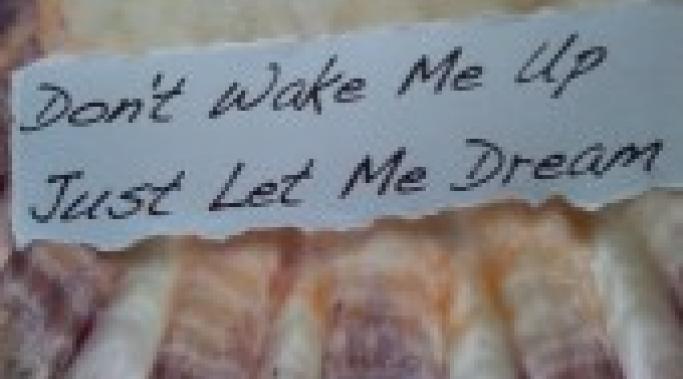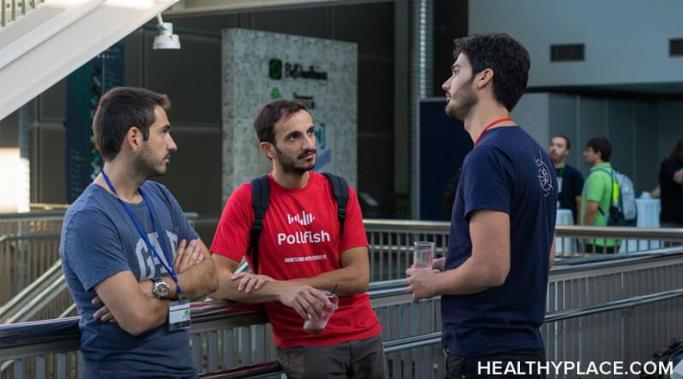Blogs
When I heard my ex-husband tell me what I was thinking, doing or feeling, he was usually wrong. He painted a picture of me that was so far from my reality that I felt it was imperative to correct him; I was not the person he described. The argument that followed invariably left me in tears, hurt and feeling unheard, misunderstood, and hopeless of finding intimacy with the man I loved.
I wondered why he married me when he thought I was such a selfish, conniving, miserable woman. I was the same woman at 35 as I had been at 20. His constant nit-picking at my faults (and my willingness to examine myself to see if he was right) practically halted my personal development. I spent so much time double-checking who I was that I didn't have time to consider who I would like to be.
How do I explain anxiety to my spouse, lover, friends?
I really don't think you can do it without first coming to grips with the idea that the people we love may never fully know, and probably won't "get it" the way we hope. But that doesn't mean they can't be valuable allies in managing anxiety issues.
The law doesn't help abuse sufferers much unless
you have photos of bruises or other injuries and
were brave enough to go to the hospital to have them treated and
filed a police report and
immediately left your abuser - the first time.
That may be simplistic, but it appears to be true in the news stories. So, because most abuses occur before anyone gets hit, sufferers of abuse and relationship-related trauma must learn to find justice for their battered psyche on their own.
We expect our name and address to be available to various agencies, but here's some food for thought. Is your mental health status a data point on a government screen somewhere? It is if you're from up north, and it's affecting their lives in unexpected ways.
What would a world without eating disorders be like?
It would be a world of unimaginable freedom for everyone. It would be a world that each one of us could thrive in.
It is only a dream of mine. But think of the possibilities . . .
Here we go again--another school year, and with it, another round of Laying Down the Law. I do it every September--advise Bob (my son, who has bipolar disorder and ADHD) of what is expected of him in terms of his scholastic efforts.
And every year, I ask myself (and everyone else)--Am I expecting too much? Are my standards too high?
This week, I taped an interview with the PBS show To the Contrary, which I hope will make it to the air. The show is in its 20th season, and is billed as "A Discussion of Issues from Diverse Perspectives."
I am thrilled that this show has selected to discuss Ben Behind His Voices, and allow me to share our story with its viewers, along with the messages of understanding, respect, hope, and the need for better services and more research. I'm finding, though, as I work the media circuit, that coverage is very much dependent upon what the interviewer wants to bring out, whether he/she has even read the book, and their personal experiences with mental illness.
Right before we taped this one, the producer shared something with me that I found disturbing, and wonder if you do too.
Everyone who takes psychiatric medication is aware of side effects. Common side effects include things like dry mouth, headache, nausea, fatigue and so on. I've been a cluster of side effects longer than I can remember.
(My very favourite is the one where I couldn't open my eyes in the morning and I thought I was blind. Ah, but for another day.)
And one of the side effects I have had several times with medications, particularly antipsychotics, is temperature dysregulation. In other words I'm always freaking cold (or way too freaking hot).
Over the years I have learned a lot of things to-do and not-to-do when seeing the psychiatrist. Here are a few tips for what to do in your initial visit with the psychiatrist. I wish I would have done these things sooner. If I had I probably would have received the proper diagnosis and treatment many years before I finally did.
People ask me how I plan to continue in recovery without AA and without practicing the 12-step program. I never have an easy answer. I have been to AA, know the steps, and understand the benefit of community, but I had to find my own path in recovery without AA. I took time to think about what helped me get sober and helped me stay sober, and realized that many of the 12-step principles are present in my recovery without AA.







